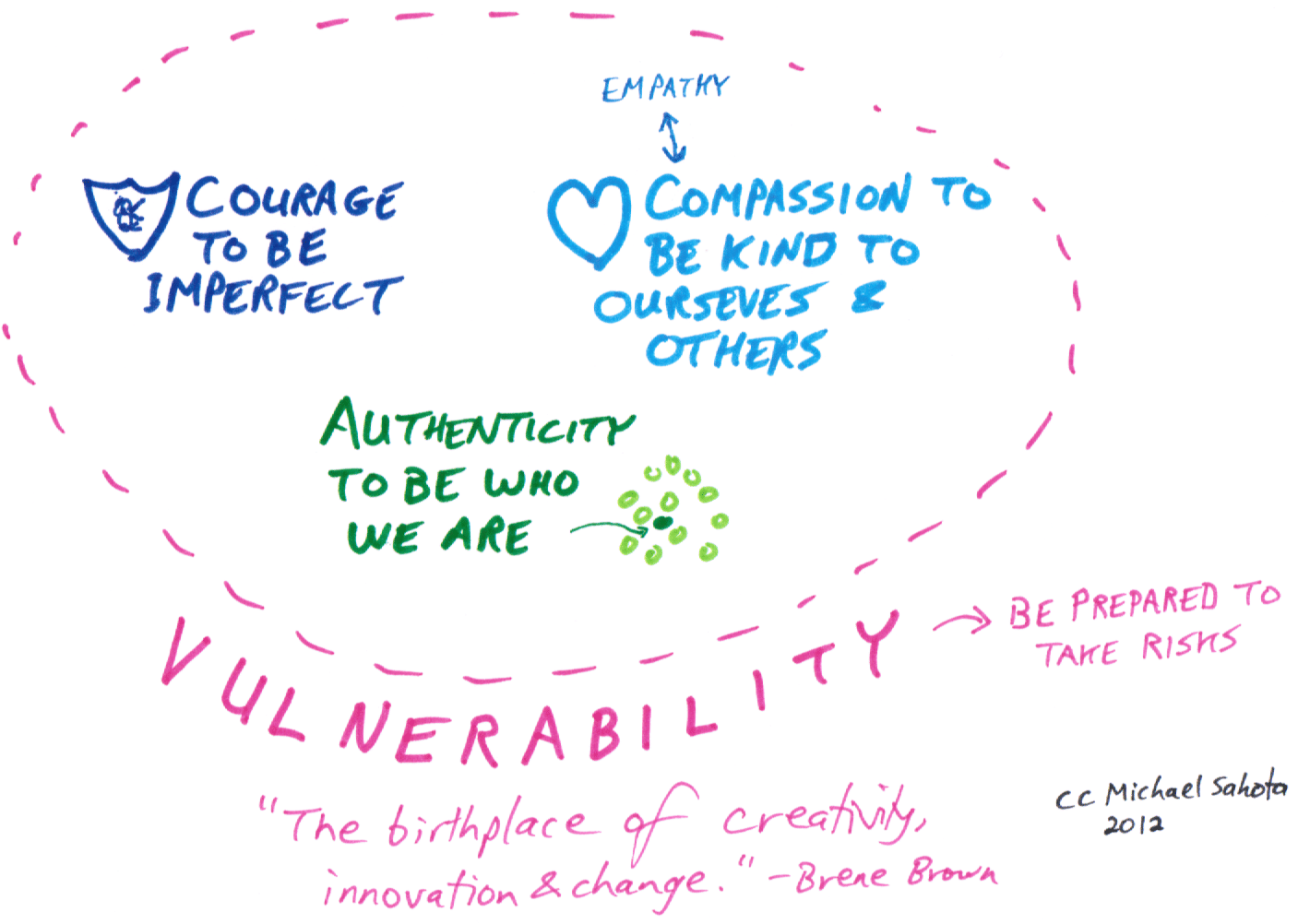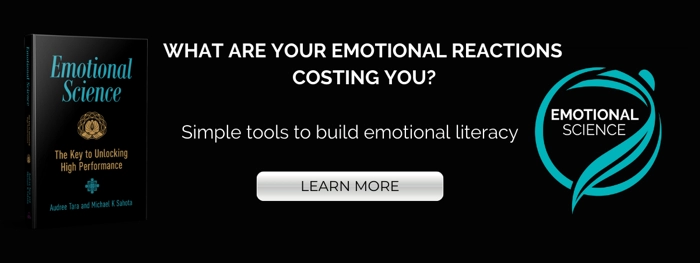Brene Brown had an amazing discovery: The people who have love and belonging believe they are worthy of love and belonging. These people, dubbed the “wholehearted” were able to overcome the shame issues that limit people’s lives. This post is based on Brown’s video The Power of Vulnerability and in her book The Gifts of Imperfection.
The wholehearted have a set of common traits shown in the infographic below.

Vulnerability
The definition of the word vulnerable is “susceptible to physical or emotional attack or harm”. How can this be a good thing?
At her TED Talk Listening to Shame, Brown surveys the audience to show that people see vulnerability as pure courage – as long as it’s someone else!
Browns research shows that practicing vulnerability is essential for building the social connections required for living a life of joy and belonging. We have to risk being hurt in order to build strong connections with people. Yes, you do have to talk about that difficult issue if you want a strong relationship. Yes, you do have to ask that person out and risk rejection to make progress.
Many organizations are concerned about how to bring creativity and innovation to the workplace. Brown argues that vulnerability is the birthplace of creativity, innovation and change. How people inter-relate and function as a social network is at the core of this.
The following three elements are all necessary aspects of vulnerability: Courage, Compassion, Authenticity.

Courage
Courage is not about heroics and it’s not about a character trait. It is about regular practice in daily life. Each day we have many opportunities to practice our courage: to do the right thing, to be vulnerable, to be authentic. It can be as simple as telling someone that you don’t want a meeting that you don’t think is valuable – even though you know it may lead to conflict. It may be in some areas of your life you are very courageous while others could use work.
We are imperfect. We all want to be seen as good, fair, reasonable. And yet the reality is that we are human, not perfect, and we make mistakes. We forget. We ignore our inside voices telling us what is right. The wholehearted not only recognize their imperfections, but see them as part of who they are and embrace them lovingly.
Compassion
Compassion is a deep form of empathy where we co-suffer with the other person. Pema Chödrön writes “When we practice generating compassion, we can expect to experience the fear of our pain. Compassion practice is daring. It involves learning to relax and allow ourselves to move gently towards what scares us.” Wholehearted living requires that we be compassionate to ourselves as well as others.
I have noticed over the last few days as I have written about empathy and shame, I have room for improvement in practicing compassion towards myself. After a troubling event, I immediately went into the trap of “looking on the bright side”. When I noticed this, I slowed down and gave myself the grace to experience a flood of emotions around the issue. To allow myself to be heard and acknowledged. It was difficult in the moment but allowed me to discharge the feelings so they did not impact the rest of my day.
A critical piece of this is kindness to ourselves. Brown states: “We can only be kind to others to the extent that we can be kind to ourselves.” I have kids and this struck me through my soul like a sharp burning knife. At the time I was aware I had low levels of self-kindness, so the implication that I could not be fully kind to my children really hurt. This truth, has led to a year+ long quest for self-kindness. (But that’s another post).
Authenticity
Authenticity is about being true to who we really are 24 hours a day. It means that we know who we are (imperfections and all) and let ourselves be seen that way. It means that we say and do what our true identity requires. And yes, this means taking on risk. But that is what we need to do to fully reclaim our lives.
I would like to add Brown’s Caution: “If you trade in your authenticity for safety, you may experience the following: anxiety, depression, eating disorders, addiction, rage, blame, resentment and inexplicable grief.”
Closing
The good news is that there is a path forward for fully living our lives. The bad news is that there is a world of difference between knowing what you need to do and knowing how to do it. There are some guideposts (starting places) for learning how to make changes in your life in The Gifts of Imperfection. If you are interested in making changes in your life, it is best to start with Brown’s first book I Thought it was Just me since this is much more helpful in understanding what challenges you are up against.
I would like to close with the following quote from Brene Brown: “Yes, I am imperfect and vulnerable and sometimes afraid, but that doesn’t change the truth that I am also brave and worthy of love and belonging”. (p.1)

Acknowledgements
I thank Brene Brown for her excellent job modeling the power of vulnerability and for helping me in my life. I would also like thank everyone who participated in the “Gifts of Imperfection” meetup group for a safe space to practice vulnerability.


